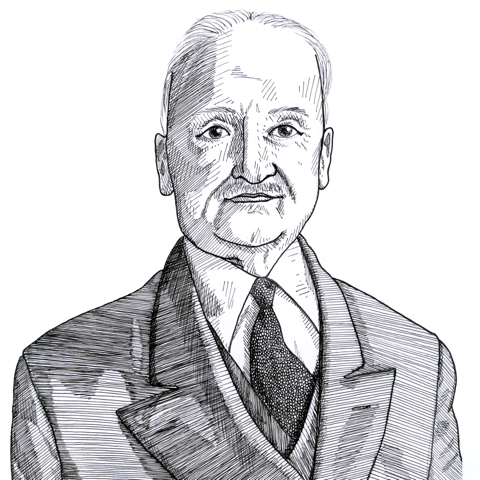
Mises on the worship of the state or statolatry (1944)
Found in: Omnipotent Government: The Rise of the Total State and Total War
At the height of WW2 when states on both sides of the conflict had massively increased government intervention in the economy, the Austrian economist Ludwig von Mises (1881-1973) warned against “worship of the state”, or statolatry as he also called it, seeing in it the cause of “the worst evils which mankind ever had to endure”:
The State
It has been necessary to dwell upon these truisms because the mythologies and metaphysics of etatism have succeeded in wrapping them in mystery. The state is a human institution, not a superhuman being. He who says “state” means coercion and compulsion. He who says: There should be a law concerning this matter, means: The armed men of the government should force people to do what they do not want to do, or not to do what they like. He who says: This law should be better enforced, means: The police should force people to obey this law. He who says: The state is God, deifies arms and prisons. The worship of the state is the worship of force. There is no more dangerous menace to civilization than a government of incompetent, corrupt, or vile men. The worst evils which mankind ever had to endure were inflicted by bad governments. The state can be and has often been in the course of history the main source of mischief and disaster.